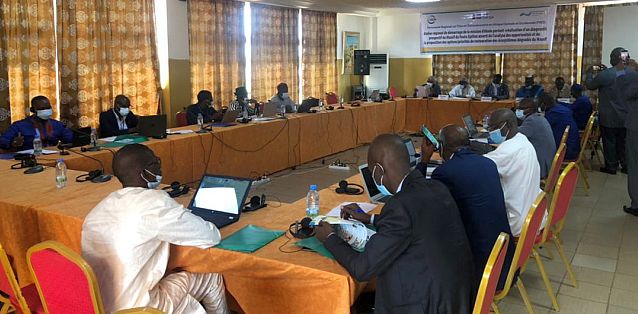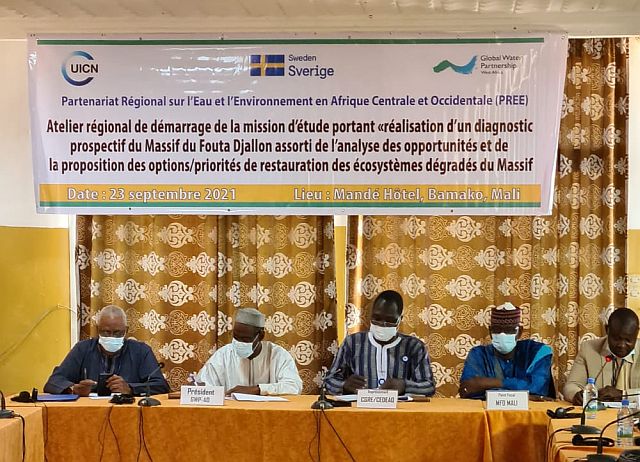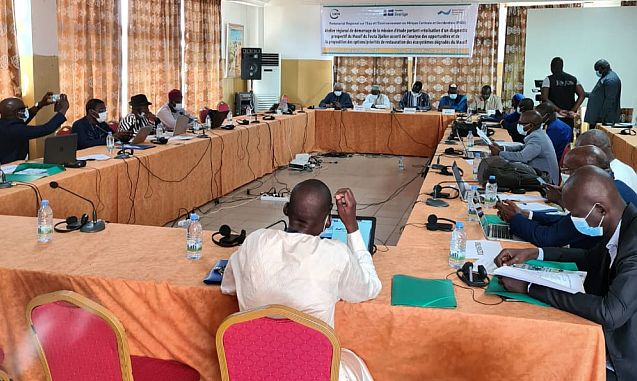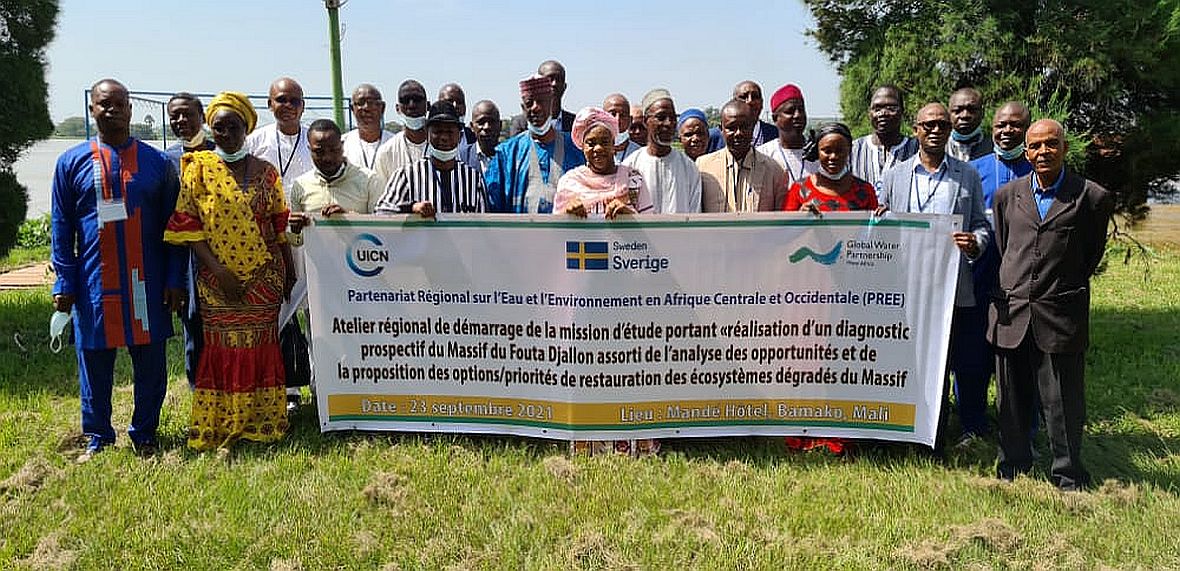The study mission together with training that followed are part of the implementation of the "Regional Partnership on Water and Environment in Central and West Africa" (PREE) project funded by the Swedish International Development Agency (Sida).
The overall objective of the project is to strengthen the resilience of natural ecosystems of local communities in the river and lake basins of Central and West Africa. This objective will be achieved through, among other things, the realization of a prospective diagnosis of the Fouta Djallon Highlands along with the analysis of opportunities and the proposal of options/priorities for the restoration of degraded ecosystems in the Highlands.
 The PREE is implemented by the International Union for Conservation of Nature (IUCN) and its partners in Central and West Africa, including Global Water Partnership in West Africa (GWP-WA).
The PREE is implemented by the International Union for Conservation of Nature (IUCN) and its partners in Central and West Africa, including Global Water Partnership in West Africa (GWP-WA).
A regional Consultant has been recruited and a multi-sectoral monitoring framework for the conduct of the above-mentioned study mission has been put in place by GWP-WA and the Coordination Unit together with the PREE/IUCN partners.
The training workshop provided the FDH Country Focal Points with the knowledge needed to implement the Restoration Opportunities Assessment Methodology (ROAM) to collect the data and information required to establish the prospective diagnosis of the FDH along with the analysis of opportunities and the proposal of options/priorities for the restoration of degraded ecosystems of the Fouta Djallon Highlands.
 Focal Points acquired fundamental knowledge of tropical forest ecology, disturbances, social and governance factors and actions for restoration of degraded ecosystems; a common understanding and capacity to assess opportunities for restoration of degraded ecosystems in the FDH, the value of multifunctional landscapes, as well as related linkages for resource mobilization for restoration and to strengthen the commitment of key decision makers from different sectors.
Focal Points acquired fundamental knowledge of tropical forest ecology, disturbances, social and governance factors and actions for restoration of degraded ecosystems; a common understanding and capacity to assess opportunities for restoration of degraded ecosystems in the FDH, the value of multifunctional landscapes, as well as related linkages for resource mobilization for restoration and to strengthen the commitment of key decision makers from different sectors.
The regional training workshop allowed the participating Focal Points to take ownership of and effectively engage in the application of the ROAM to collect the data and information required to assess and define restoration measures for degraded ecosystems in the Fouta Djallon Highlands.

